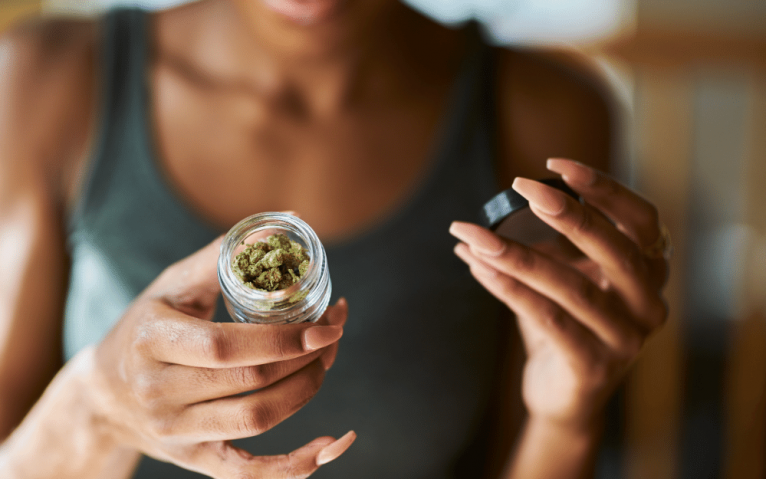With the legalization of marijuana in many states, more people are demanding marijuana-based treatment programs for many conditions. One of those treatments is the use of marijuana for alcohol withdrawal symptoms. Of course, as with any new treatment program, some benefits and drawbacks should be considered. Let’s take a look at the use of marijuana for alcohol addiction treatment overall.
How Bad Are Alcohol Withdrawal Symptoms?
Symptoms of alcohol withdrawal happen when someone suddenly stops drinking alcohol after long-term use or excessive drinking. Severe withdrawal symptoms are rare, but when they occur, it can be fatal. When people stop drinking, the body becomes hyper excited, anxious, and restless. For heavy drinkers, these symptoms can include high blood pressure, seizures, and tremors.
For most alcohol abusers and alcohol addicts, initial or common withdrawal symptoms include:
- Anxiety
- Irritability
- Lethargy
- Shakiness
- Mood swings
- Nightmares
- Difficulty thinking clearly
- Sweating
- Headaches
- Insomnia
- Tremors
- Appetite loss
However, around five percent of people struggling with alcohol withdrawal symptoms experience delirium tremens or “the DTs.” When this happens, signs of alcohol withdrawal syndrome include:
- Fever
- Agitation
- Seizures
- Confusion
- Hallucinations
- High blood pressure
When people experience these symptoms, checking into a clinically-supervised addiction rehab facility or detox program is key to prevent fatal consequences.
What’s Marijuana Maintenance Program?
Marijuana is a common alternative among people trying to quit drinking. Overall, alcohol disrupts brain chemicals, increasing dopamine, and GABA neurotransmitters. It also reduces CB1 receptors in the body responsible for a wide range of daily activities. However, marijuana can help balance these chemicals and prevent the disruption of alcohol causes.
Marijuana maintenance programs promote the use of cannabis while in recovery to reduce the cravings of the substances they’re addicted to, usually alcohol or drugs. To people addicted to highly dangerous substances, marijuana could seem like a less hazardous substance to use compared to alcohol. Many believe cannabis is less harmful than alcohol, as well.
Using Marijuana for Alcohol Withdrawal Symptoms
While marijuana can help ease some intense withdrawal symptoms, it doesn’t come without some consequences. Marijuana is still an addictive substance, even though most people still argue the facts. Unfortunately, because marijuana has been illegal for so long, there’s not enough evidence that looks at the long-term effects of its daily use.
Benefits
Those who favor the practice argue that many of the ill-effects of alcohol detoxification might be softened if a person can taper off alcohol gradually while using marijuana. Supporters say that those who cannot attend group meetings can benefit from cannabis maintenance programs.
In addition, supporters of marijuana for alcohol withdrawal treatment bring up potential health benefits. For example, marijuana is frequently used to alleviate pain, stimulate appetite, and enhance moods. These are all benefits that can help someone recovering from alcohol use disorder.
Other Pros:
- Some believe that unlike alcohol, marijuana can be used without the risk of death from binging.
- Marijuana also has fewer drug interactions than alcohol.
- Finally, cannabis has some health benefits compared to alcohol, including pain relief, enhanced moods, and stimulating appetite.
Drawbacks
Of course, many oppose the use of marijuana for alcohol withdrawal treatment. First of all, they argue that individuals will just change one addiction for another. The foundation of alcoholism is that they have no control over their use of the substance. Therefore, they won’t have control over their marijuana use.
The biggest potential pitfall of using marijuana for alcohol withdrawal symptoms is that research suggests that almost 30% of people who use marijuana develop a cannabis use disorder. Another study found that marijuana could reduce alcohol treatment effectiveness. The study found that marijuana use lowers a person’s odds of achieving abstinence from heavy alcohol use.
Other Cons:
- Marijuana might contribute to underlying mental health conditions that are common in people who misuse alcohol.
- Can lead to long-term impacts on someone’s health, including impairment of memory and cognitive skills, increased risk of lung conditions, and brain damage.
- Marijuana can act as a gateway drug, which might lead people with already addictive behaviors to use drugs like cocaine and heroin and start a drug abuse path.
Finding Alcohol Detox Programs Near Me
Unfortunately, there isn’t a one-way street when it comes to addiction recovery. Part of treatment and recovery is learning how to live a life without the substance. People can use many different tools to help with healing, such as the 12-steps, holistic treatments, and more.
At Lighthouse Recovery Institute, we believe in offering customized alcohol addiction treatment plans for those struggling with drug abuse. On a case-by-case basis, we look at each program to cater to whatever your needs are to get better and walk towards recovery. From alcohol detox programs to group meetings and more, everyone in our team is committed to helping you win the struggle with addiction.









